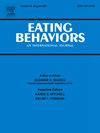Comparing eating disorder examination questionnaire factor structures in veteran men and women
IF 2.4
3区 医学
Q2 PSYCHIATRY
引用次数: 0
Abstract
The present study aims to investigate the factor structure and measurement invariance by gender of the Eating Disorder Examination Questionnaire (EDE-Q)—a commonly used measure evaluating eating disorder symptom severity— in veterans. The present study used data from a 2022 survey study conducted with a nationally representative sample of 405 veterans. Competing factor structures based on prior literature were compared using confirmatory factor analyses (CFA). Multigroup CFA was used to evaluate measurement invariance among men and women (n = 401). None of the full-item factor structures, including the original four-factor model, were supported. A brief seven-item, first-order three-factor structure demonstrated best model fit and highest scale reliability. A bifactor model that included a general factor and three brief factors demonstrated adequate fit; however, factor loadings for two of the specific factors were low, and internal consistency of all three specific factors in this model was poor. Both the best-fitting first-order and the bifactor models demonstrated measurement invariance by gender. The present study strongly supports the use of a brief, seven-item three-factor EDE-Q with veterans. Moreover, there was some evidence for the appropriateness of a global score from the seven-item EDE-Q, although it may not fully capture eating disorder symptom severity in veterans. Further, the brief seven-item EDE-Q is appropriate for gender comparisons. The results of this study have important clinical and research implications for the use of the EDE-Q to evaluate eating disorder symptom severity in veteran men and women.
退伍军人男女饮食失调检查问卷因素结构比较
本研究旨在探讨退伍军人进食障碍症状严重程度评估量表《进食障碍检查问卷》(ed - q)的因素结构及其性别不变性。本研究使用的数据来自2022年的一项调查研究,该研究对全国代表性的405名退伍军人进行了调查。采用验证性因子分析(CFA)对基于先前文献的竞争因子结构进行比较。采用多组CFA来评估男性和女性的测量不变性(n = 401)。全项目因子结构,包括原来的四因素模型,都不被支持。一个简短的七项一阶三因子结构显示出最佳的模型拟合和最高的量表信度。包含一个一般因子和三个简短因子的双因子模型拟合良好;然而,两个特定因素的因子负荷较低,并且该模型中三个特定因素的内部一致性较差。最优拟合一阶模型和双因子模型均表现出不同性别的测量不变性。本研究强烈支持在退伍军人中使用简短的七项三因素ed - q。此外,有一些证据表明,从七个项目ed - q中得出的整体评分是适当的,尽管它可能不能完全反映退伍军人饮食失调症状的严重程度。此外,简短的七项ed - q适用于性别比较。本研究结果对使用ed - q评估退伍军人饮食失调症状严重程度具有重要的临床和研究意义。
本文章由计算机程序翻译,如有差异,请以英文原文为准。
求助全文
约1分钟内获得全文
求助全文
来源期刊

Eating behaviors
Multiple-
CiteScore
4.20
自引率
3.60%
发文量
65
审稿时长
60 days
期刊介绍:
Eating Behaviors is an international peer-reviewed scientific journal publishing human research on the etiology, prevention, and treatment of obesity, binge eating, and eating disorders in adults and children. Studies related to the promotion of healthy eating patterns to treat or prevent medical conditions (e.g., hypertension, diabetes mellitus, cancer) are also acceptable. Two types of manuscripts are encouraged: (1) Descriptive studies establishing functional relationships between eating behaviors and social, cognitive, environmental, attitudinal, emotional or biochemical factors; (2) Clinical outcome research evaluating the efficacy of prevention or treatment protocols.
 求助内容:
求助内容: 应助结果提醒方式:
应助结果提醒方式:


